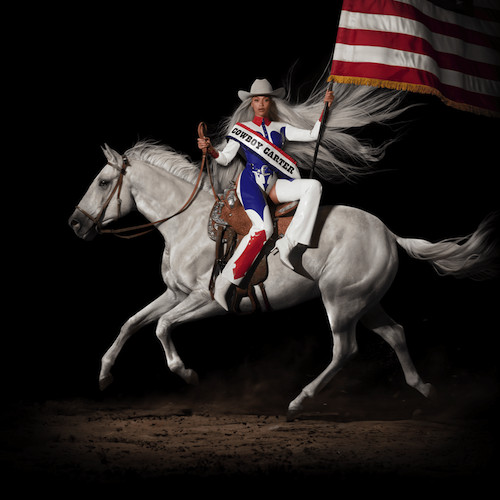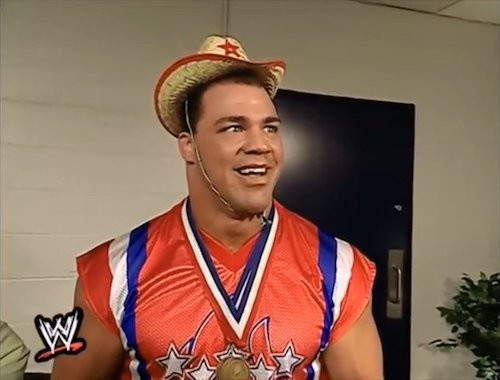
Beyonce’s latest album, Cowboy Carter, released on March 29, 2024, is more than just a collection of songs; it’s a statement. As Willie Nelson might say about Beyonce or perhaps something else entirely, “Sometimes you don’t know what you like until someone you know turns you on to some real good s***.” This sentiment perfectly encapsulates the surprise and intrigue surrounding Beyonce’s foray into country music.
Remember when Beyonce advised us to seek “paper” as the best revenge? In 2024, she’s proving that point again, not just with financial success but with artistic dominance. If financial victories weren’t enough, dropping a groundbreaking album is certainly a way to silence critics and ignite the internet. When news broke that the second act of Beyonce’s Renaissance trilogy would lean into country music, the reaction across mainstream America ranged from bewilderment to outright opposition. However, for those familiar with Beyonce’s trajectory, this move felt less like a surprise and more like a calculated evolution.
The seeds of Cowboy Carter were sown in 2016 when Beyonce’s performance of “Daddy Lessons” at the Country Music Awards was met with a frosty reception from the Nashville establishment. This experience clearly left a mark. Beyonce herself acknowledged, “This album was born out of an experience that I had years ago where I did not feel welcomed…and it was very clear that I wasn’t.” Just as Renaissance in 2022 aimed to reclaim house music for its Black creators, Act II: Cowboy Carter has an equally potent mission: to carve out space in country music, regardless of resistance.
Two consecutive “Horsey albums,” as the reviewer playfully calls them, signify a bold direction. For those who anticipated this genre exploration, Cowboy Carter is a confirmation of Beyonce’s visionary artistry.
Before delving into a detailed review of Cowboy Carter, it’s important to establish a perspective. Staying within one’s area of expertise is crucial. While possessing some familiarity with country music, a deep dive into its intricacies is beyond this review’s scope. Therefore, this analysis of Cowboy Carter focuses on personal enjoyment and overall impact, rather than a comparative study against established country music norms. Furthermore, Beyonce herself has framed this project not as a country album, but as a “Beyonce album.” This distinction is key to understanding its genre-bending nature. And in many respects, she is absolutely right.
One immediate takeaway from Cowboy Carter is how naturally Beyonce’s vocal talent lends itself to this genre. A recurring critique of Beyonce’s recent work has been the underutilization of her exceptional singing voice. While glimpses of her vocal prowess appear in house tracks or between rap verses, Cowboy Carter provides a platform for her voice to truly soar, reminiscent of her 4 album era. The opening track, “American Requiem,” showcases this powerfully. Her vocals are sharp and commanding, cutting through the instrumentation as she delivers the album’s core message: “Used to say I was too country/then the rejection came, said I wasn’t country ‘nough/Said I wouldn’t saddle up/but If that ain’t country, tell me, what is?”
Beyonce’s mastery extends to her interpretations of classic songs. Her covers of The Beatles’ “Blackbiird” and Dolly Parton’s “Jolene” are prime examples. Where many artists might oversing or dramatically reinterpret these iconic tracks, Beyonce demonstrates restraint and nuance. Her rendition of “Blackbiird” is gentle and respectful, while her “Jolene” manages to honor Dolly Parton’s original while injecting Beyonce’s signature edge. This fulfills Parton’s long-held wish for a Beyonce cover of the song.
The pre-released singles, “16 Carriages” and “Texas Hold Em,” have already permeated popular culture. “16 Carriages,” arguably less overtly “country,” resonates deeply with Beyonce’s vocal tone and stands out as one of the album’s strongest tracks. “Texas Hold Em,” in contrast, feels more deliberately crafted for mainstream country appeal, almost aiming for a 2024 version of “Achy Breaky Heart” in its line dance accessibility. Tracks like the somber “Daughter” and the ethereal “Protector” offer smoother transitions into the album’s country-infused soundscape.
However, those anticipating a full album of “Texas Hold Em” style tracks will find Cowboy Carter full of surprises. Beyonce operates outside genre boundaries, embracing an outlaw spirit. The incredibly catchy “Bodyguard” leans more towards 80s pop-rock than traditional country, but its infectious energy is undeniable. It paints a picture of Beyonce as a fiercely protective lover and begs for dynamic visuals. “Ya Ya” ventures into 60s psychedelic territory, evoking the vibe of a guest performance on the classic Batman TV series. The pairing of “RiIverdance” and “II Hands II Heaven” is particularly noteworthy. “RiIverdance” feels like a Renaissance-era track that found its way onto Cowboy Carter, while “II Hands II Heaven” maintains the energy but with a slightly slower, midtempo groove.
Despite these high points, Cowboy Carter isn’t without its inconsistencies. While Beyonce’s genre-bending approach is largely successful, the album occasionally feels like it’s trying to cater to too many tastes simultaneously, leading to some disjointed moments.
“Spaghetti,” while likely to become a fan favorite for its audaciousness, feels out of place with its aggressively raucous and almost off-beat rap. Similarly, the chemistry between Beyonce and Miley Cyrus on “II Most Wanted” feels somewhat lacking. While both artists are individually strong, their voices don’t quite harmonize effectively. In this instance, a more restrained vocal performance from Beyonce might have allowed Cyrus to blend better.
“Sweet Honey Buckiin'” is essentially a medley of three song fragments, none of which fully develop into compelling tracks. Perhaps the most frustrating track is “Levii’s Jeans.” Its production and lyrical metaphors feel dated, reminiscent of Beyonce’s B’Day era. While the song starts promisingly, the addition of Post Malone feels unnecessary and jarring. While not overtly negative, his feature detracts from the song’s overall impact.
Reflecting on the previous “Horsey Album,” Renaissance, it had its share of both genre-defining highs and less memorable tracks. Cowboy Carter, however, surpasses its predecessor by not only celebrating its chosen genre but also skillfully incorporating diverse sounds, resulting in a more engaging and dynamic listening experience.
Is Cowboy Carter excessively long? Perhaps slightly. However, the interludes contribute significantly to the album’s character, with “Desert Eagle” deserving to be a full-length song. Will long-time Beyonce fans, more accustomed to her signature sound, be alienated? Possibly, but tracks like “Tyrant” serve as a bridge, blending contemporary Beyonce elements with country-inspired flourishes like “whoa there!” and “giddy ups.”
The central question remains: will Cowboy Carter finally earn Beyonce the acceptance she has sought since 2016? Probably not from all corners, particularly from those resistant to genre evolution. However, echoing a sentiment previously expressed regarding Jay Z’s Grammy speech:
Validation for exceptional work is natural to desire. However, true validation should stem from genuine connection with her core fanbase – those who deeply resonate with her art – rather than fleeting praise from detached award voters. This is a valuable lesson for all artists.
Nashville’s establishment might remain resistant to fully embracing Beyonce’s country exploration. But for her devoted fans, the ones whose opinions truly matter, Cowboy Carter is a resounding success.

Image: Kurt Angle intensely focused, symbolizing Beyonce’s determined and genre-defying approach to her music.
Best tracks: “Bodyguard,” “16 Carriages,” “RiIverdance”
Rating: 4 out of 5 stars.
For fans eager to experience Beyonce’s Cowboy Carter and explore her incredible catalog, consider looking for Beyonce Cd Songs. While digital platforms offer convenience, owning Beyonce CD songs allows for a tangible connection to her artistry and supports the music you love. Explore online retailers or your local music store to find Beyonce CD songs and immerse yourself in her groundbreaking sound.

